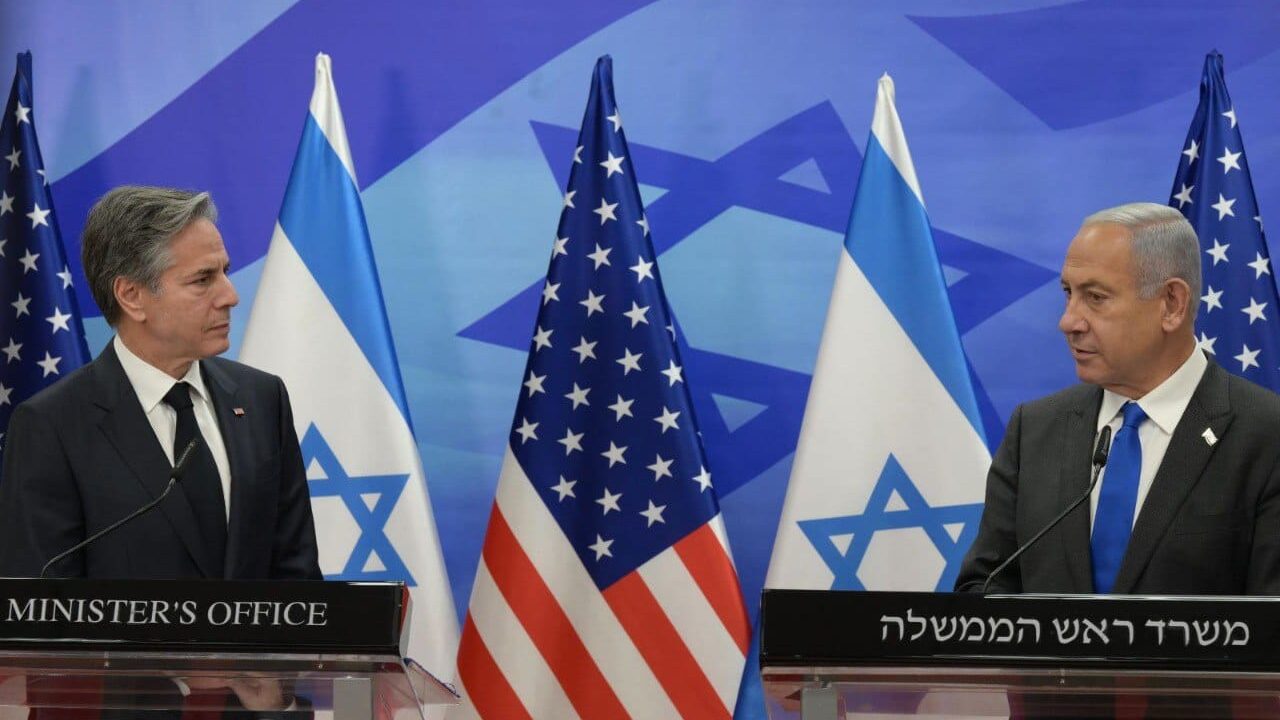A Growing Concern for the Biden Administration
Ma’ariv, Israel, February 2
The words of US Secretary of State Antony Blinken during his visit to Israel reflected the American administration’s increasing concern with the policies being pursued by the new government domestically, and in its dealings with the Palestinians externally. Since the government’s creation, the Biden administration has sent several messages publicly and privately, calling for the government to uphold shared democratic values and refrain from taking unilateral action against the Palestinians, or altering the status quo on the Temple Mount, which could spark further violence in the region. To this can be added a series of statements made by American legislators and members of the Jewish community in the United States, expressing deep concern over the steps taken by the Israeli government to threaten the democratic character of the State of Israel. This demonstrates the great importance that the Biden administration – and many Americans – place on upholding democratic and liberal values. Since assuming office, President Joe Biden has demonstrated his unwavering commitment to the security of the State of Israel. Throughout his tenure in various government positions, President Biden has demonstrated an understanding of Israel’s policy decisions even when they did not align with his own expectations, such as regarding support for Ukraine. The new government must take heed of the United States’ warnings and refrain from testing the president’s patience. Should these warnings be disregarded, and worse, should they be met with a sense of complacency, the president may take counteractive measures. This could manifest in a rollback of the current administration’s broad backing of Israeli interests and, in the worst-case scenario, a reluctance to respond to Israeli requests. Prime Minister Binyamin Netanyahu’s top foreign policy goals are to curb the growing threat from Iran’s nuclear program and to further the Abraham Accords to other Arab countries (potentially Saudi Arabia). For these goals to be realized, there must be close collaboration between Israel and the United States. The Israeli policy toward the US administration should be grounded in the understanding that the strategic alliance between the two nations is indispensable. The State of Israel must capitalize on this moment to work with the US government to manage expectations and foster cooperation on various regional and international matters. This is especially relevant given the past tensions between the prime minister and the Democratic Party. In the wake of the upcoming presidential elections, the government must act with caution to preserve bipartisan support. They should avoid being pulled into internal conflicts, and refrain from expressing support for a single candidate. It is also essential for the government to engage in a constructive dialogue with the various factions of the Democratic Party, particularly the younger generation, in order to reverse their decreasing support for Israel. – Shai Har Tzvi (translated by Asaf Zilberfarb)


